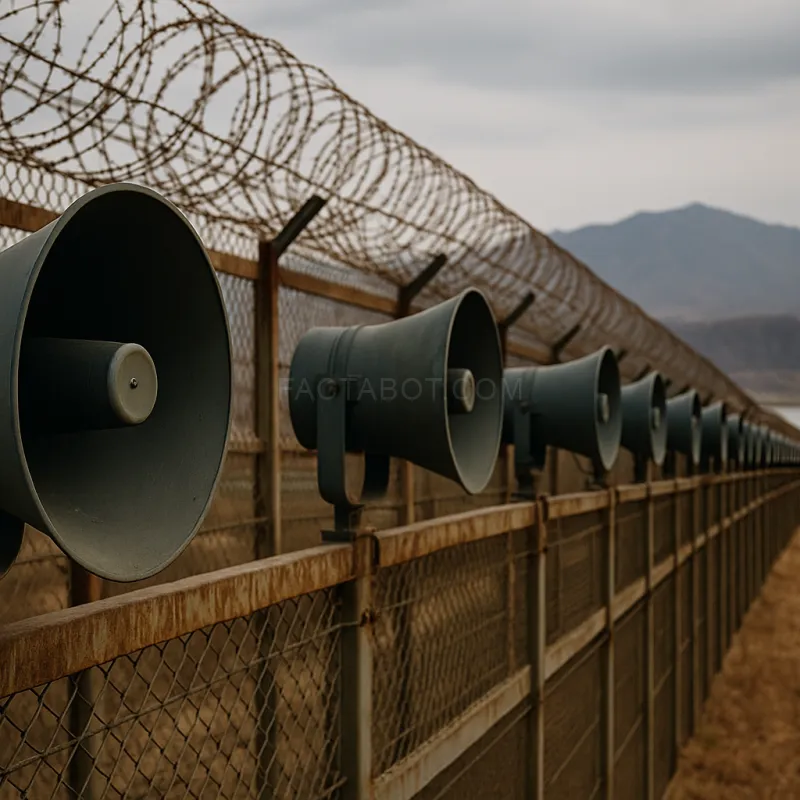South Korea Silences Border Blasts—North Korea Misses Daily Roast
Author by
Clara
Friday, 2025 Jun 27|
11:07 AM
In a rare gesture of de-escalation, South Korea has turned off its border loudspeakers—those famous propaganda machines that blasted everything from K-pop to political commentary across the Demilitarized Zone.
The move, announced by Seoul on Thursday, aims to reduce tensions with North Korea following months of tit-for-tat provocations.
The loudspeakers were more than just audio equipment—they were symbolic tools of psychological warfare, broadcasting pro-democracy messages and cultural content toward the North.
Sometimes it was BTS, sometimes it was defectors sharing testimonials.
All of it designed to irritate Pyongyang and disrupt the regime’s tightly controlled information bubble.
North Korea predictably hated them.
The broadcasts were regularly cited as a reason for retaliatory threats, military posturing, and angry dispatches from state media.
But South Korea defended them as non-lethal pressure—sound waves instead of gunfire.
That changed this week.
According to Seoul officials, the decision to halt the broadcasts was made “in the spirit of calming tensions and restoring dialogue.” This follows recent escalations, including North Korea’s launch of several short-range missiles and its bizarre tactic of sending propaganda balloons filled with trash and leaflets across the border.
While South Korea has not ruled out resuming broadcasts if provoked, for now, the volume is off.
The Ministry of National Defense emphasized that “peace and stability” on the peninsula remain a top priority and that “every opportunity for dialogue must be preserved.” So far, North Korea has not issued an official statement, but observers note the silence may be temporary.
Pyongyang rarely lets symbolic moves go unanswered.
Analysts suggest this quiet period could either mark a diplomatic opening—or the calm before another outburst.
The decision to pause broadcasts has drawn mixed reactions domestically.
Critics argue it rewards bad behavior and weakens South Korea’s leverage.
Supporters say it’s a calculated risk worth taking if it leads to actual talks.
For now, the DMZ is slightly quieter.
No speeches, no pop songs, no sermons of democracy echoing through the trees.
Just a tense silence and two countries still staring each other down—with fewer decibels, but no less distrust.
🧨 You made it to the end. now what?
Like that roast? Don't keep it to yourself.
Don't Miss the Next Meltdown
Subscribe if you enjoy rage, sarcasm, and the sound of democracy wheezing.
Hit me again (surprise me)“🚨 Daily Roast Drops – Subscribe Now”
other stories Clara's raging at:

News - Environment
NSW Gets Absolutely Belted by Sky

News - Uncategorized
Etihad Charges $3.5K to Not Die Mid-Flight

News - Uncategorized
Boomer MP Demands Rock Access, Yeets Indigenous Culture Off the Cliff

News - Business



